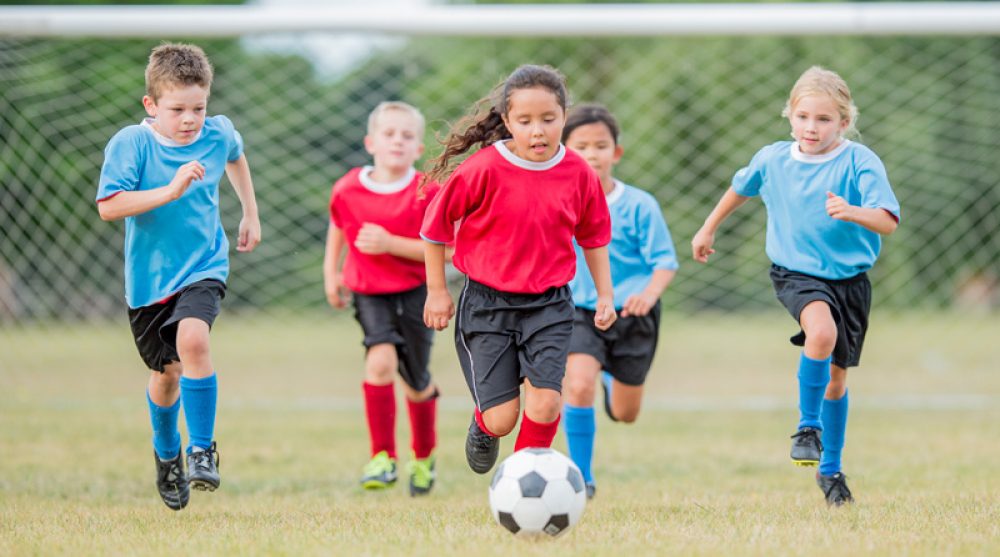The government has set out plans to beef up its monitoring of how primary schools spend PE and sport premium funding and to give schools awards for equality.
The Department for Education has today published its “school sport and activity action plan”. This was pledged earlier this year alongside new targets for schools to offer at least two hours of PE and sport a week and provide equal access to girls and boys.
Here’s what you need to know.
1. New mandatory reporting tool for PE premium
Funding through the primary PE and sport premium has “made a difference”, but “there is potential for schools to use it better”, the DfE said.
To improve accountability, the government will introduce a new digital tool for schools to “report on spending of their allocation of the premium”.
The tool will be available “in May or June 2024” and schools will be expected to test it by the end of next academic year. It will become a mandatory condition of grant funding for the 2024-25 academic year.
Information gathered will include figures on the overall spend, what the funding has been spent on, whether there is any unspent funding and swimming and water safety attainment.
2. Use funding to meet 2-hour target
Government has also published updated guidance on the premium for next year “to steer schools towards the most effective uses…drawing on the experience of the schools who use their premium well”.
The guidance states that the premium should be used to fund “high-quality PE and sport for at least 2 hours a week, complemented by a wide range of extracurricular sport and competitive opportunities”.
It should also be used for “providing or improving equal access to sport for boys and girls”.
The guidance also states that funding for next year must be used “within the academic year it has been allocated for”.
This follows several years in which schools have been allowed to carry forward unused funding, a relaxation put in place during the Covid-19 pandemic but withdrawn from September.
3. New ‘evaluation template’ for schools
The DfE will also “promote the use” of a planning, reporting and evaluation template created by the Youth Sport Trust and Association for PE.
This will be “for schools to complete alongside the digital tool and will provide opportunities for schools to plan their premium spend to effectively deliver the premium objectives”.
It will also allow schools to be “more transparent with their premium spend and will offer the opportunity for schools to record more information to support the data submitted through the digital tool”, the DfE said.
There will still be a requirement for schools to publish this template or a similar report on their websites.
4. Schools should give equal access ‘where wanted’
The DfE said it was “right that schools should continue to decide which sports they offer so that they can meet the needs of their pupils”.
Schools will “often separate sporting experiences for boys and girls on the grounds of safety and fairness, but they should take the time to reflect on how this affects girls and boys accessing the same sports equally”.
The government expects the “starting point for schools should be to give girls and boys access to the same sports where they are wanted”.
Schools should “take an approach which maximises participation and use of the resources available to ensure exposure to a range of different types of sport”.
5. New equality criteria in School Games Mark
The government announced earlier this year that it would update the School Games Mark to recognise equal opportunity.
The mark, funded by government and administered by the Youth Sport Trust, currently rewards schools for their commitment to the development of school sport.
But equality criteria will be added covering both curricular and extracurricular provision. These will be phased in from September this year and become a mandatory requirement to get the mark from 2024.
Schools will be awarded either bronze, silver, gold or platinum, and data will be published annually on how many schools are achieving the award.
Lower awards will recognise “intent to improve” equal access, and schools will achieve higher awards “when they are able to evidence that they have delivered sport equally to pupils”.
6. Fresh guidance coming this year
New non-statutory PE and sport guidance will be published by the end of 2023, drawing on best practice from schools that offer equal access for girls to sport during the school day and additional extracurricular activities.
It will “help primary and secondary schools deal with the issues they face in providing high quality PE and sport, including a focus on girls’ equal access and at least 2 hours of PE and sport a week”.
“We will look at independent schools and the best examples in the state sector as a comparison. This guidance will include detailed case-studies outlining examples of good practice, to help support teachers and senior leaders to deliver good PE and sport in schools.”
















Your thoughts